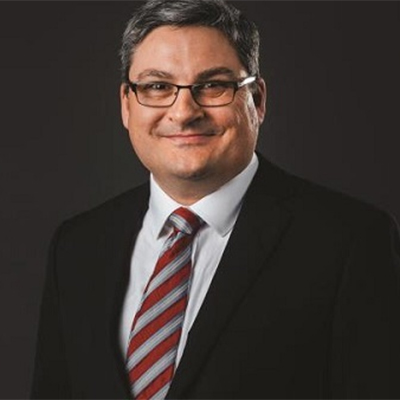Fund managers have to confront a new reality, Raphael Arndt, Chief Investment Officer of the Future Fund, says. And not everyone is going to like this new reality, because it means Australia’s sovereign wealth fund will use fewer managers and will be more demanding in its requirements.
For too long fund managers have been able to include returns that require little skill, if any at all, on their part and charge for it, Arndt says.
But technological advancements have now made it possible to dissect not only a manager’s ability to generate alpha, but also whether this particular skill is of use to the portfolio overall.
“My point here is not about ‘passive is good, active is bad’,” Arndt says in an exclusive interview with [i3] Insights after his presentation at the [i3] Investment Strategy Forum in Torquay, Victoria, earlier this month.
“There is a place for everything, but you want to understand it and you want to pay for what you get.”
Although the new approach to listed equities will mean beta strategies will become the largest part of the equities portfolio, he is not about to go on a firing spree of existing active managers, he says.
“It is not a big-bang change; it is an incremental change. And it has been going on for some time,” he says.

My point here is not about ‘passive is good, active is bad’. There is a place for everything, but you want to understand it and you want to pay for what you get.
“Some of the aspects of our original portfolio configuration haven’t changed.
“We’ve always had an alternative beta program, focusing on quality and value, for example, and we have some active managers there but they are clearly adding value above their fees, so we expect to keep them.
“The key point is that we are now able to target and highlight managers where we don’t think their process, style or fee structure is adding value for us.
“The ‘for us’ is important, because it doesn’t mean they are bad managers, it just means that when we take their particular characteristics into our portfolio, it doesn’t add something at the portfolio level.”
Tracking in Real Time
The Future Fund is currently implementing a custom-built technology platform that allows it to track its holdings more often and in much more detail.
“We weren’t able to understand the portfolio in real time up until recently because of technology,” Arndt says.
“When you only get a feed on what your positions are once a month, or once a quarter, it is very hard to factor in currency movements, for example.
“Also, we didn’t have as many tools as a few years ago. Today you can buy an exchange-traded fund for a few basis points. You couldn’t do that 10 years ago.”
How Does the Future Fund View Fees?
The Future Fund runs $38 billion in equities and this scale has already enabled it to negotiate reduced fees, so it is not about to go out to managers and demand a drop in fees based on the new analytical framework, he notes.
“We wouldn’t do that. We would point out to them what they are delivering and what they are charging and ask what they think is appropriate,” he says.
“Some managers have changed their arrangements with us and there are others who wouldn’t. That is a business decision for them to make and if we think they are worth what we are paying, then we keep them and if we don’t, then we will terminate them.
“We don’t have a black and white number, but it would be unusual for us to accept that the manager would keep more than half of the alpha. But in many cases it would be a far smaller proportion.
“We look at fee per unit of alpha. True alpha, true skill that can be delivered through market cycles irrespective of the direction of the market is incredibly valuable.”
Long-term Advantages of the Future Fund
The changes are also partly the result of the appointment of Björn Kvarnskog as Head of Equities in February last year. Kvarnskog joined the Future Fund from Swedish pension fund AP4 and together with his team of seven he set out to review the equities portfolio.
“Björn is very much a long-term investor and he would be in the camp that we are not cleverer than the market. We are not trying to beat the market because we think we are cleverer, but what we do know is that we have certain advantages,” Arndt says.
“One of them is time horizon. Focusing on the equity risk premia, that is something that a long-term investor can take advantage of and when it is cheap, we would buy more of it and when it is expensive, we would buy less of it.
“With factor investing it is the same thing. We would expect that through time some of these styles will underperform the market index through parts of the cycle. But we know that and we understand that and we understand that through time we have conviction that we should be better off.”
Where to Look
The current climate of low yields and inflated asset values makes the outlook for returns grim and to get more bang for its buck the fund wants to redirect its fee budget to managers that move the dial net of fees.
The fund expects true stock picking will most likely be found in relatively small capacity managers looking at global stocks with long/short, market-neutral mandates.
“We started a long/short program some years ago and the targeted beta across that program was approximately 0.4, so that was a low-risk equities implementation,” Arndt says.
“But we have now moved that mandate to be much more targeted towards beta neutral.
“It is a fund-of-fund mandate, so that means that some of the underlying managers have been moved out because their style wasn’t conducive to that and other managers have been moved in,” he says.
With much of the overhaul underway, he says he does not expect to add any further resources to his investment team.
“We don’t think it requires extra resources in the equities team, in fact the manager supervision resource that we’ve always had is much more intense for an active manager than for a passive mandate, but it clearly needs extra resources on the technology side,” he says.
__________
[i3] Insights is the official educational bulletin of the Investment Innovation Institute [i3]. It covers major trends and innovations in institutional investing, providing independent and thought-provoking content about pension funds, insurance companies and sovereign wealth funds across the globe.

